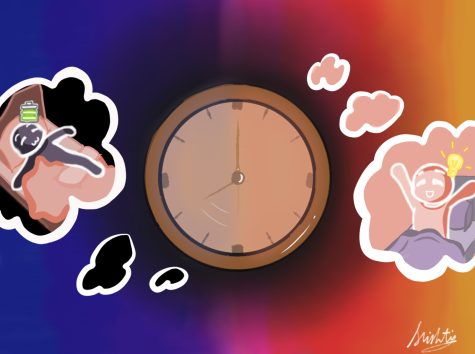No Walk in the PARCC
April 7, 2017
For many high schools, the standardized testing period becomes a burden that causes students immense stress.
Administered in New Jersey and eight other states, PARCC, or the Partnership for Assessment of Readiness for College and Careers, has become a graduation requirement in Bernards Township Schools for the class of 2020 (current freshmen) and all future graduating classes. From now on, in order to graduate, students must receive a passing “valid score” for each year they attend school for all eligible exams.
Standardized tests have always been controversial across the United States. Proponents of standardized testing argue that all students must meet a specific testing standard to accurately understand student progress and collect information of student strengths and weaknesses, both for individuals and the American public school system as a whole. In addition, standardized testing allows all schools across the country to teach the same curriculum, ensuring that children in California and children in Florida will both graduate high school having learned the essential skills needed for their futures.
This school of thinking, no pun intended, created the Common Core Standards, a 2009 governmental education initiative. Common Core devised a specific curriculum that the government deemed necessary for students to learn before high school graduation, along with a need for a new standardized test that would ensure that the curriculum was being followed to its full extent, thus spawning PARCC. New Jersey, among many other states, adopted Common Core and PARCC in 2010.
But PARCC, as well as many other standardized tests, takes place in March and April rather than in May or June. As a result, a portion of the curriculum remains untaught during PARCC, which becomes especially problematic on the mathematics test. According to Adrianna Liu ‘19, “The PARCC is flawed because most math classes haven’t finished teaching some of the stuff that could come up on the test… it’s hard to have ‘complete proficiency’ if you haven’t learned everything yet.”
In addition, PARCC testing takes three to four hours a day and lasts five to six days long, limiting the actual learning that takes place while schools administer PARCC testing. At Ridge, all classes run on an abbreviated schedule for over a week, as testing occupies mornings.
Overall, at Ridge High, students found the changes to the administering of PARCC to be mostly negative. The current freshmen, the first class obligated to take the PARCC, see it simply as another hole they have to jump through in order to graduate.
Chris O’Brien ‘20 comments, “It’s really just a waste of time, but now we’re all being forced to waste time. Wait, can colleges see your PARCC scores now? …. Shoot.”
The sophomore and junior classes, while not required to pass to graduate, are still obligated to take the exam. However, these students simply don’t see any value in the test, as Evan Li ‘19 remarks, “The only good part about PARCC is that we don’t have to take it to graduate.”
For Ridge students, their discontent with PARCC isn’t about passing the exam or not. Instead, the debate over PARCC, and standardized testing as a whole, focuses on the forced implementation of a test that students feel provide little benefit to them.



